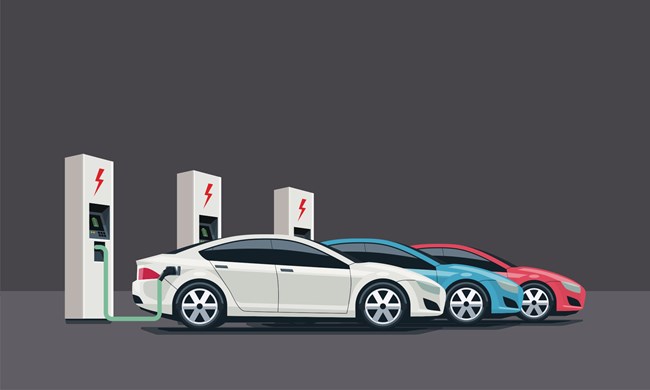We use cookies to ensure that we give you the best experience on our website. If you continue without changing your settings, we will assume that you are happy to receive all cookies on the Business Car website. However, if you would like to, you can change your cookies at any time

The start point for the best source of fleet information |
Fleet industry facing challenges from consumer EV cost concerns, inquiry hears
Date: 07 September 2023 | Author: Sean Keywood

Consumers are being discouraged from EV adoption due to cost concerns - a situation which could rebound negatively on the fleet market, it has been said.
Fleets have charged ahead on the road to electrification, supported by major incentives for the adoption of electric company cars, but interest from retail buyers, both in the new and used market, has stagnated.
According to Motors.co.uk chief operating officer Phill Jones, concern about the cost of EVs has become the main barrier to consumer adoption, which he said could make meeting the UK's new petrol and diesel car phase-out targets challenging.
He said: "We have seen a change in consumer anxiety, away from that around infrastructure, and more now down to pounds and pence - the cost of these cars. Coupled with the fact there is still availability of ICE vehicles, consumers have difficult choices to make.
"I think people usually have to want an EV, rather than it being kind of a no brainer decision."
Jones was speaking at the opening of an inquiry into EVs by the House of Lords Environment and Climate Change Committee, where another of the speakers, Auto Trader brand director Marc Palmer, warned that an unequal transition was being created.
He said: "We have seen recently, probably for the last six to nine months, a slowdown in demand for private registrations [of EVs], which has been driven in part by macro-economic conditions and pressure on household budgets.
"The transition is unequal. Interest in EVs and drivers of electric cars, certainly private retail EV owners, are in more affluent postcodes with driveways - 80-85% of EVs owned by private individuals are charged on driveways.
"There are three core groups really that are being left behind by the transition. Those over 55, women, and lower income households. We see a real risk of those people being left behind in the transition, so action needs to be taken.
"The core reasons they are being left behind are around cost, perceptions around public charging infrastructure, and the change required to lifestyle which is holding a lot of people back."
Also addressing the inquiry, BVRLA director of corporate affairs Toby Poston explained that the degree to which fleets were currently dominating new EV sales appeared unsustainable.
He said: "We have got the fleet sector, where if I look at the company-provided vehicle sector, you have got uptake of around 50% - even 90% in some areas - but if you contrast that with the retail part of the new car and used car market you have got much lower levels of uptake. For retail it's more like 10%, and if you look at used vehicles it's in single figures.
"That imbalance is a real worry for me going forward. That is not a healthy, or potentially even a sustainable transition in the long term if you've got that imbalance within it, because the whole industry works in quite a joined-up way."
Poston said this imbalance in demand had been reflected in falling used EV values.
He said: "I think the last year has been like watching a slow potential car crash happen. I think we've seen on average 20-25% falling value of used EVs. That is from a high position, but if that carries on, and these fleets have been investing billions in hundreds of thousands of electric cars, those vehicles are going to hit the market in sort of three to four years' time. "If that slump continues, they have got to be a lot more cautious in how they set their new prices for lease rates.
"On the one hand you could say cheap used cars, cheaper EVs for used buyers is good. That benefit will only really be there for a while because eventually it will just create a big surge in the cost of new leased EVs, and the vast majority of EVs are leased, and that's just going to make them unaffordable and damage the transition."
According to Poston, the fleet industry is itself taking some action to address the issue.
He said: "We are seeing our members trying to act. We are seeing growth in terms of used vehicle leasing, used vehicle subscriptions, because used [EVs] are much more reliable and cheaper to maintain [than ICE vehicles].
"Leasing companies are seeing it as a potential fix to offer them for a second lease, so if you lease it for three years, instead of putting it in the used market you can lease it for a further three years, and you haven't got to put it into the risk of an auction where prices are just sort of plummeting.
"But I think the key here is just the incentives. You've got the fleet market at the moment that is on steroids with really powerful tax incentive, and the retail new and used market has nothing."
When asked if the situation was putting fleet operators off EVs, Poston said: "On the car side fleets are very committed. But they are beginning to have concerns . because they are taking the risk on depreciation, and we are talking about billions of pounds potentially here."











